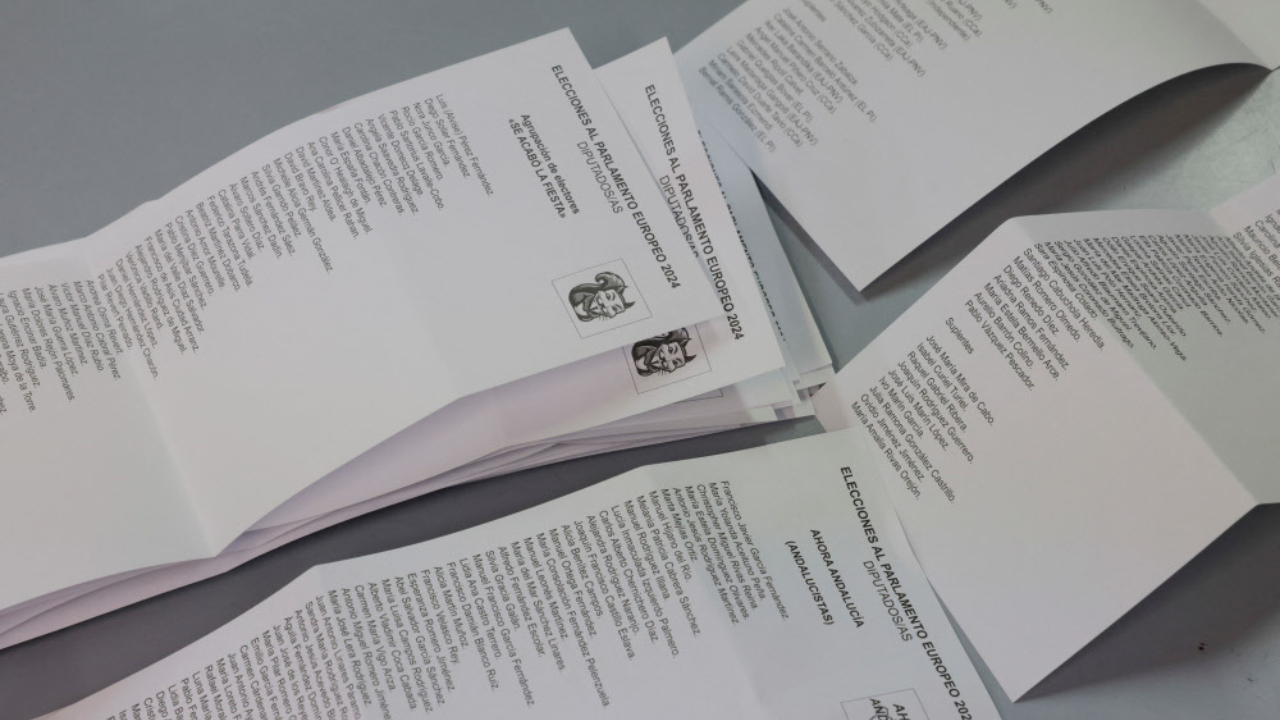NEW DELHI: Spain’s European Union (EU) elections witnessed a notable shift in the political landscape as the right-wing Popular Party (PP) emerged victorious, outperforming Prime Minister Pedro Sanchez’s Socialists. However, the most unexpected development was the success of the new far-right party “Se Acabo la Fiesta” (SALF), led by controversial YouTuber Luis ‘Alvise’ Perez.
With nearly all votes counted, the PP secured 22 seats with 34.2 percent of the vote, surpassing the Socialist Party, which garnered 20 seats with 30.2 percent. This marked a significant change from the 2019 European polls, where the Socialists held a strong lead with 21 seats compared to the PP’s 13.
In his victory speech, PP leader Alberto Nunez Feijoo declared, “Voters had handed them the victory they were waiting for, with 700,000 more votes than the Socialist Party,” positioning Spain “on the cusp of a new political cycle.” Despite the PP’s victory, Socialist leader Teresa Ribera emphasized that the result was not definitive, noting that they were “only two seats behind.”
The election also saw a strong performance from the far-right party Vox, which finished third with six seats, up from four in 2019. Vox received 9.6 percent of the vote, although this was a decrease from the 12.4 percent they achieved in the July 2023 general election.
The biggest surprise of the election was the success of SALF, which garnered 4.6 percent of the vote, earning three seats in the European Parliament. Founded by YouTuber Luis ‘Alvise’ Perez, SALF capitalized on a platform of anti-migrant rhetoric and anti-corruption messages. Addressing his supporters, Perez claimed, “Spain is a country where tomatoes need more papers to leave than illegal immigrants need to come in.”
This election came nearly a year after an inconclusive national election in Spain. While the PP won the most seats, they lacked the parliamentary support to form a government, allowing Sanchez to secure a majority with the backing of far-left and regional parties, including Catalan separatists.
The election campaign was marred by allegations against Sanchez’s wife, who is under a preliminary graft probe set to testify next month. The right-wing opposition demanded Sanchez’s resignation, but he insisted the probe was baseless and politically motivated.
In the end, the combined right-wing parties won nearly 50 percent of the vote, while the left followed with 43 percent. The leftist vote was split among Sumar, the junior coalition partner, which won three seats, and the hard-left Podemos, led by former Equality Minister Irene Montero, which secured two seats.
(With inputs from agencies)
With nearly all votes counted, the PP secured 22 seats with 34.2 percent of the vote, surpassing the Socialist Party, which garnered 20 seats with 30.2 percent. This marked a significant change from the 2019 European polls, where the Socialists held a strong lead with 21 seats compared to the PP’s 13.
In his victory speech, PP leader Alberto Nunez Feijoo declared, “Voters had handed them the victory they were waiting for, with 700,000 more votes than the Socialist Party,” positioning Spain “on the cusp of a new political cycle.” Despite the PP’s victory, Socialist leader Teresa Ribera emphasized that the result was not definitive, noting that they were “only two seats behind.”
The election also saw a strong performance from the far-right party Vox, which finished third with six seats, up from four in 2019. Vox received 9.6 percent of the vote, although this was a decrease from the 12.4 percent they achieved in the July 2023 general election.
The biggest surprise of the election was the success of SALF, which garnered 4.6 percent of the vote, earning three seats in the European Parliament. Founded by YouTuber Luis ‘Alvise’ Perez, SALF capitalized on a platform of anti-migrant rhetoric and anti-corruption messages. Addressing his supporters, Perez claimed, “Spain is a country where tomatoes need more papers to leave than illegal immigrants need to come in.”
This election came nearly a year after an inconclusive national election in Spain. While the PP won the most seats, they lacked the parliamentary support to form a government, allowing Sanchez to secure a majority with the backing of far-left and regional parties, including Catalan separatists.
The election campaign was marred by allegations against Sanchez’s wife, who is under a preliminary graft probe set to testify next month. The right-wing opposition demanded Sanchez’s resignation, but he insisted the probe was baseless and politically motivated.
In the end, the combined right-wing parties won nearly 50 percent of the vote, while the left followed with 43 percent. The leftist vote was split among Sumar, the junior coalition partner, which won three seats, and the hard-left Podemos, led by former Equality Minister Irene Montero, which secured two seats.
(With inputs from agencies)

